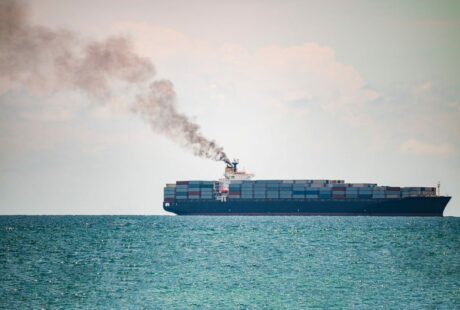Environmental groups strongly criticised the most recent International Maritime Organisation (IMO) response to the Paris Agreement objective of keeping global warming below 1.5 degrees, and in particular the lack of an agreement to establish a greenhouse gas emissions reduction target for the shipping sector. The outcome fails to allay fears that the IMO might be unable to tackle this issue in an effective and timely manner and reinforces the argument that the EU should push ahead with its own regional measure.
International shipping is responsible for around 3% of total greenhouse gas emissions globally, and growing fast, and the issue was high on the agenda of this the 70th session of the IMO’s Marine Environment Protection Committee (MEPC70) when it met from 24-28th October this year.
However, some progress was made in this traditionally difficult regulatory arena. Perhaps, most striking is the contrast between where the IMO is now and where it was immediately prior to the Paris Agreement, just 12 months ago. Despite a plea to MEPC68 from some of the most vulnerable countries – in particular the personal intervention of the Marshall Island’s Tony De Brum to establish a target for ship greenhouse gas emissions – the IMO and shipping industry went into Paris claiming that absolute emissions reductions from the industry were impossible and inappropriate.
The historic Paris Agreement resulted in a significant shift in the attitude of industry, with the International Chamber of Shipping for the first time accepting that to avoid dangerous climate change the shipping industry would have to decarbonise.
The politics at IMO was also slowly changing. At the first IMO meeting after Paris (MEPC69) a coalition of Europeans and Pacific small island developing states pushed even harder for a shipping greenhouse gas target, and were joined this time by the International Chamber of Shipping calling for an IMO determined contribution for the sector. The outcome of this meeting was disappointing, with no clarity that the subject would be properly discussed at the next meeting, and no real indication that the IMO was finally ready to tackle this important issue.
After MEPC70 the situation is a little clearer. The negotiations have produced a roadmap that is intended to lead to a “comprehensive IMO strategy on reduction of GHG emissions from ships”. It doesn’t mention the establishment of targets but it does talk about ambition. It talks about the establishment of short, medium and long-term measures but is unclear when the first of these will be in place. Importantly, it also envisages a significant scaling up of the resources that the IMO makes available for this issue.
While the politics remain difficult, there are now signs that the IMO may be gearing up to tackle ship greenhouse gas emissions in a more systematic and comprehensive way. However, the lack of any clarity about the ultimate objective for the sector or the timing of measures means we shouldn’t hold our breath, and action at EU level remains essential.
The same IMO meeting also discussed revising and strengthening the design efficiency standards for new ships but failed to make progress.
Posted on: 9 November 2016



